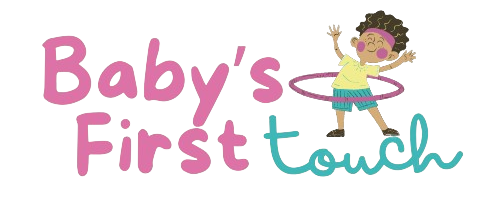Table of Contents
- Why Organizational Skills Matter (More Than Just a Tidy Room)
- The Power of Play in Skill Development
- Play Activities to Develop Key Organizational Skills
- 1. Sorting and Categorizing Games (Developing Logical Thinking & Grouping)
- 2. Sequencing Activities (Developing Planning & Understanding Order)
- 3. Puzzles and Construction Toys (Developing Spatial Reasoning, Planning & Problem-Solving)
- 4. Scavenger Hunts and Treasure Maps (Developing Planning, Following Directions & Spatial Awareness)
- 5. “Clean Up” Games (Developing Responsibility, Categorization & Spatial Awareness)
- 6. Pretend Play Scenarios (Developing Planning & Role-Playing Organization)
- 7. Board Games and Card Games (Developing Rule-Following, Turn-Taking & Strategic Planning)
- Practical Tips for Parents and Educators
- Conclusion: Building a Foundation for Future Success Through Play
Unlocking Order: Fun Play Activities to Boost Your Child’s Organizational Skills
Is your child’s room a whirlwind of toys, clothes, and mystery items? Does finding homework in their backpack feel like an archaeological dig? While a bit of delightful chaos is a natural part of childhood, struggling consistently with organization can be frustrating for both kids and parents. But here’s some fantastic news: developing crucial organizational skills doesn’t have to be a chore! In fact, one of the most effective ways to nurture these abilities is through something children already love and excel at – play.
That’s right! Play isn’t just about fun; it’s a powerful engine for learning and development. Engaging, enjoyable play activities for developing organizational skills can help your child learn to plan, sort, sequence, manage their time, and take care of their belongings, all while having a blast. These aren’t just ‘tidiness’ skills; they form the bedrock of executive functions, vital for academic achievement, problem-solving, and navigating life successfully. So, let’s ditch the nagging and explore a treasure trove of playful strategies to help your child build a foundation for an organized future!

Why Organizational Skills Matter (More Than Just a Tidy Room)
Before we jump into the games, let’s quickly understand why fostering organizational skills in children is so important. It goes far beyond simply having a neat space (though that’s a nice bonus!).
The Link to Executive Functions
Organizational skills are a key component of executive functions – a set of mental processes managed by the brain’s frontal lobe. Think of executive functions as the brain’s CEO, responsible for skills like:
- Planning and Prioritizing: Deciding what needs to be done and in what order.
- Working Memory: Holding information in mind while performing tasks.
- Task Initiation: Starting tasks without procrastination.
- Time Management: Estimating time, adhering to schedules, and meeting deadlines.
- Metacognition: Thinking about one’s own thinking; self-monitoring and evaluating progress.
- Flexibility: Adapting to changes and shifting focus when needed.
Developing organizational skills directly strengthens these crucial executive functions.
Benefits in School and Beyond
Children with strong organizational skills often find school less stressful and more manageable. They are better equipped to:
- Keep track of assignments and materials.
- Manage their time effectively for homework and projects.
- Break down large tasks into smaller steps.
- Take organized notes.
- Prepare for tests.
These advantages extend far beyond the classroom, contributing to success in extracurricular activities, chores, future jobs, and managing personal responsibilities throughout life.
Building Confidence and Independence
When children learn to manage their belongings, time, and tasks, they gain a sense of control and competence. Successfully organizing their backpack, completing a project step-by-step, or following a routine boosts their self-esteem and fosters independence. They learn they *can* manage their world, reducing anxiety and reliance on adults for constant direction.
The Power of Play in Skill Development
Okay, so organization is important. But why use play to teach it? Because play is the natural, most effective way children learn!
Learning Through Fun
When learning feels like play, children are more motivated, engaged, and likely to retain information. Play taps into intrinsic motivation, making the process enjoyable rather than feeling like a tedious lesson. They learn organizational concepts organically while immersed in an activity they genuinely like.
Low-Pressure Environment
Play provides a safe space to practice and make mistakes without fear of judgment or failure. If a block tower designed with a plan collapses, it’s not a failed test; it’s an opportunity to try a different approach. This low-stakes environment encourages experimentation and builds resilience.
Engaging Multiple Senses
Many play activities are hands-on, engaging touch, sight, and sometimes even hearing. This multi-sensory engagement helps solidify learning and makes abstract concepts like ‘sorting’ or ‘sequencing’ more concrete and understandable.

Play Activities to Develop Key Organizational Skills
Ready for the fun part? Here are various types of play activities specifically designed to target different facets of organizational skills development:
1. Sorting and Categorizing Games (Developing Logical Thinking & Grouping)
Organization often starts with making sense of items by grouping similar things together. Sorting games are fantastic for developing logical thinking and the ability to categorize.
- Why it Works: These activities require children to identify attributes (color, size, shape, function), make decisions based on criteria, and physically group items. This directly relates to organizing toys, clothes, school supplies, and even information.
- Activity Ideas:
- Color Sort Mania: Gather multi-colored items like pom-poms, LEGO bricks, buttons, beads, or even socks. Provide different colored containers or mats and have your child sort them. Start simple (2-3 colors) and increase complexity.
- Shape Safari: Use classic shape-sorter toys for toddlers. For older children, gather various household objects or cut out paper shapes and have them group items based on their shape (e.g., all the round things, all the square things).
- Toy Tidy Transformation: Turn clean-up time into a sorting game. “Let’s put all the vehicles in the red bin, the stuffed animals on the shelf, and the art supplies in the clear box.” Use picture or word labels on containers to reinforce categories.
- Laundry Sorting Squad: Involve kids in sorting laundry by color, type (towels, shirts), or by family member. Sock matching is a classic, surprisingly challenging sorting task!
- Grocery Grouping: After shopping, let your child help put things away by category. “Where do the cold foods go? Can you gather all the fruit? Let’s put the cans together here.” This builds real-world categorization skills.
- Button Bonanza: A bag of mixed buttons offers endless sorting possibilities: by color, size, number of holes, or material.
- Practical Tip: Talk about the sorting criteria. Ask, “Why do these belong together?” Use clear bins so children can see the satisfying results of their organization. Praise their effort and focus.
2. Sequencing Activities (Developing Planning & Understanding Order)
Many tasks require steps to be completed in a specific order. Sequencing activities help children understand and follow ordered processes, which is crucial for planning and task completion.
- Why it Works: Sequencing requires anticipating what comes next, understanding cause and effect, and following a logical progression. This builds foundational skills for following instructions, planning projects, and managing routines.
- Activity Ideas:
- Story Sequencing Cards: Use commercially available cards or create your own by drawing simple pictures depicting a short story (e.g., planting a seed, making a sandwich). Have the child arrange them in the correct order.
- Building Instructions: LEGOs, model kits, IKEA furniture – anything with step-by-step instructions is a fantastic sequencing activity. Encourage them to follow the steps precisely.
- Recipe Fun: Follow simple, picture-based recipes for snacks or crafts (like playdough). This involves reading steps, gathering ingredients (organization!), and following the sequence.
- Routine Charts: Create visual charts for morning, after-school, or bedtime routines. Include steps like ‘Brush Teeth’, ‘Put on Pajamas’, ‘Read Book’. This helps internalize daily sequences.
- Comic Strip Creation: Provide blank comic panels and have the child draw a story that unfolds sequentially.
- Bead Stringing Patterns: Ask the child to create a pattern with beads (e.g., red-blue-red-blue) or replicate a pattern you make. This involves following a visual sequence.
- Practical Tip: Use visual aids whenever possible. Talk through the steps before, during, and after. Ask questions like, “What comes next?” or “What happens if we do this step first?”
3. Puzzles and Construction Toys (Developing Spatial Reasoning, Planning & Problem-Solving)
Building and completing puzzles require planning, spatial awareness, and persistence – all closely related to organizational skills.
- Why it Works: These activities involve visualizing the end goal, planning how to achieve it, fitting pieces together (spatial organization), and problem-solving when things don’t fit.
- Activity Ideas:
- Jigsaw Puzzles: Start with large-knob puzzles for toddlers and gradually increase the number of pieces and complexity. Encourage strategies like finding edge pieces first or sorting pieces by color.
- Building Blocks & LEGOs: Free building encourages creativity, but building specific structures (a house, a tower, following a kit) requires planning, gathering the right pieces, and spatial organization.
- Pattern Blocks & Tangrams: These involve arranging shapes to match a specific design or create new ones, enhancing spatial reasoning and planning.
- Marble Runs: Designing and building a functional marble run requires significant planning, sequencing, and trial-and-error adjustments.
- Practical Tip: Encourage children to look at the picture on the puzzle box or plan their LEGO structure before starting. Discuss different strategies for solving the puzzle or building the creation. Celebrate the process, not just the finished product.

4. Scavenger Hunts and Treasure Maps (Developing Planning, Following Directions & Spatial Awareness)
These exciting games require children to follow clues or directions in sequence, use spatial thinking, and stay focused on a goal.
- Why it Works: Scavenger hunts demand careful reading or listening to clues, planning a route, remembering previous steps, and searching systematically – all organizational skills in action!
- Activity Ideas:
- Picture Clue Hunt: For pre-readers, use pictures of locations or objects as clues leading to the next picture, eventually ending at a ‘treasure’ (a small toy, snack, or sticker).
- Written Clue Hunt: For readers, write simple clues that require them to go to specific locations to find the next clue.
- Nature Scavenger Hunt: Create a list (with pictures or words) of items to find outdoors (a smooth stone, a Y-shaped twig, a red leaf). This involves searching, categorizing, and keeping track of found items.
- Map Creation and Following: Draw a simple map of your house or yard. Mark an ‘X’ for treasure. Have the child follow the map. Alternatively, have the child create a map for you or a sibling to follow.
- Practical Tip: Make the clues sequential and clear. Start with simple hunts and gradually increase the number of steps or complexity of the clues/map. Provide a bag or basket to collect items during the hunt.
5. “Clean Up” Games (Developing Responsibility, Categorization & Spatial Awareness)
Transforming tidying up from a dreaded chore into a game can make it much more palatable and reinforce organizational habits.
- Why it Works: These games provide practical, real-world application of sorting, categorizing, and understanding designated places for items.
- Activity Ideas:
- Beat the Clock: Set a timer for 5 or 10 minutes and challenge your child (or the whole family) to put away as much as possible before it rings. Play upbeat music!
- Categorized Clean-Up: Assign categories for clean-up rounds: “Okay, first let’s find all the books and put them on the shelf! Now, let’s gather all the soft toys!”
- Toy Sorting Station: Clearly label bins and shelves (with pictures for younger kids). The ‘game’ is matching the toy to its correct home.
- Designated Parking Spots: Use painter’s tape on the floor or shelf to mark ‘parking spots’ for larger toys like ride-ons or doll strollers.
- “Toy Hospital”: Gather broken or incomplete toys. The game is to ‘fix’ them (find missing pieces, tape repairs) and organize them properly.
- Practical Tip: Consistency is key. Make clean-up games a regular part of the routine (e.g., before dinner, before bed). Provide specific instructions and ensure storage solutions are accessible and logical for the child.
6. Pretend Play Scenarios (Developing Planning & Role-Playing Organization)
Imaginative play offers fantastic opportunities to practice organizational skills in a fun, self-directed way.
- Why it Works: Setting up and managing pretend scenarios often involves organizing objects and actions. Children plan the setup, assign roles, gather ‘props’, and often follow logical sequences within their play.
- Activity Ideas:
- Playing Library: Children can sort books by genre (picture books, chapter books), create library cards, arrange books neatly on shelves, and practice a check-out/check-in system.
- Grocery Store/Shop: Set up shelves with play food or household items, organize them by type, make price tags, use a play cash register, and bag items systematically.
- Restaurant: Kids can set tables (requiring spatial organization and matching items), organize play food in the ‘kitchen’, write down orders (sequencing), and serve meals in courses.
- Office Play: Provide paper, folders, staplers, kid-safe scissors, and maybe a toy phone. They can sort ‘mail’, file papers, make lists, and organize their ‘desk’.
- Packing for a Trip: Give them a small suitcase or bag and have them ‘pack’ for an imaginary trip, deciding what clothes and items are needed and organizing them in the bag.
- Practical Tip: Provide simple props like labels, empty boxes, containers, clipboards, and play money to enhance the organizational aspects of the play. Encourage them to set up *and* clean up their play area as part of the game.
7. Board Games and Card Games (Developing Rule-Following, Turn-Taking & Strategic Planning)
Many board and card games inherently require organizational thinking.
- Why it Works: These games involve following rules (a form of structure), taking turns (sequencing), managing game pieces or cards (physical organization), and often planning moves ahead (strategic thinking).
- Activity Ideas:
- Memory/Concentration: Requires remembering the location of pairs (spatial organization and working memory).
- Card Games (Go Fish, Uno, Crazy Eights): Involve sorting cards in hand by number, color, or suit, and planning which card to play next.
- Simple Strategy Games (Connect 4, Checkers): Require planning moves in advance and thinking sequentially.
- Set Collection Games: Games where the goal is to collect specific sets of items or cards reinforce categorization and planning.
- Cooperative Board Games: These often require players to plan together and organize their actions towards a common goal.
- Practical Tip: Choose age-appropriate games. Focus on understanding and following the rules. Discuss strategy gently: “What do you think might happen if you play that card?”

Practical Tips for Parents and Educators
While these play activities are fantastic tools, here are some overarching tips to maximize their effectiveness in building organizational skills:
- Start Small and Be Patient: Don’t expect overnight transformations. Introduce one or two activities or strategies at a time. Celebrate small successes and be patient; developing these skills takes time.
- Model Good Organizational Habits: Children learn by watching. Let them see you organizing your keys, making a grocery list, tidying your workspace, or following a schedule. Talk aloud about your process: “I need to put my keys here so I can find them tomorrow.”
- Use Visual Aids: Calendars, routine charts, checklists, labels with pictures or words – visual supports make abstract concepts like time and categories more concrete and easier for children to grasp and follow.
- Break Down Tasks: Large tasks (like cleaning a whole room) can be overwhelming. Break them down into smaller, manageable steps (e.g., “First, let’s put all the LEGOs in the bin. Next, let’s put the books on the shelf.”).
- Provide Positive Reinforcement: Praise effort and progress, not just perfection. Acknowledge when they follow a routine, put something away without being asked, or complete a multi-step game. Specific praise is most effective: “I love how you sorted all those blocks by color!”
- Make it Routine: Incorporate organizational practices into daily life. Make tidying up before bed a non-negotiable (but potentially fun) routine. Have a set place for backpacks and lunchboxes.
- Adapt Activities to Age and Ability: Tailor the complexity of the games and expectations to your child’s developmental stage. What works for a toddler will be too simple for an 8-year-old, and vice versa.
- Keep it Fun!: Remember, the goal is to use play. If an activity becomes a source of stress or conflict, take a break or try a different approach. The positive association with organization is key.
Conclusion: Building a Foundation for Future Success Through Play
Developing organizational skills is a journey, not a destination. It’s about equipping children with the mental tools they need to manage their world effectively, reduce stress, and build confidence. By harnessing the incredible power of play, we can transform this learning process from a potential battleground into an adventure.
Through sorting games, sequencing activities, puzzles, pretend play, and even gamified chores, children naturally practice and internalize essential skills like planning, categorizing, time management, and task initiation. These aren’t just about creating a tidier home or classroom; they are about nurturing capable, independent, and resilient individuals prepared for the challenges and opportunities ahead.
So, embrace the playful approach! Integrate these ideas into your daily interactions, celebrate the small victories, and watch as your child builds a strong foundation for organizational success, one fun game at a time. You’re not just teaching them to tidy up; you’re teaching them valuable life skills disguised as fun.



